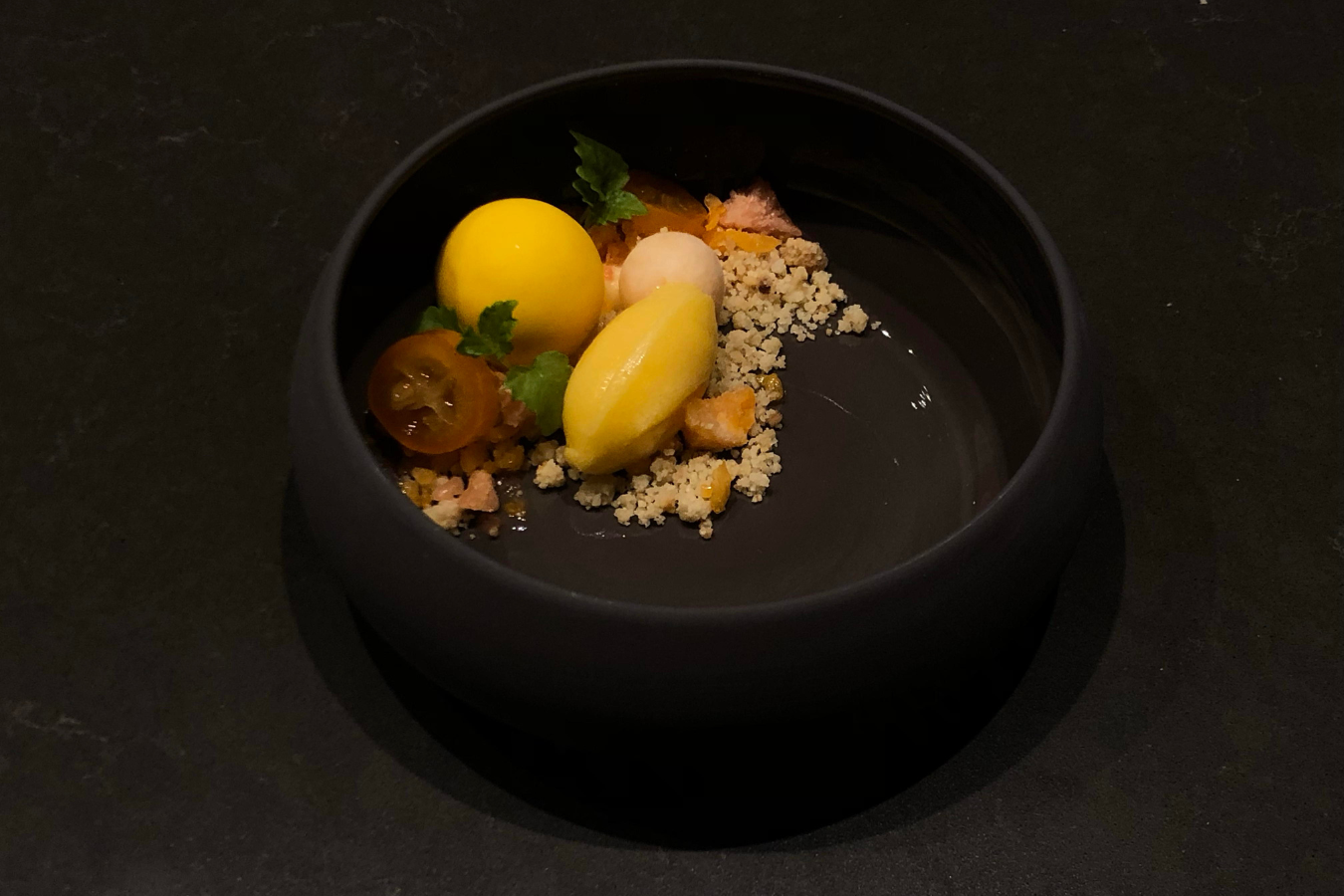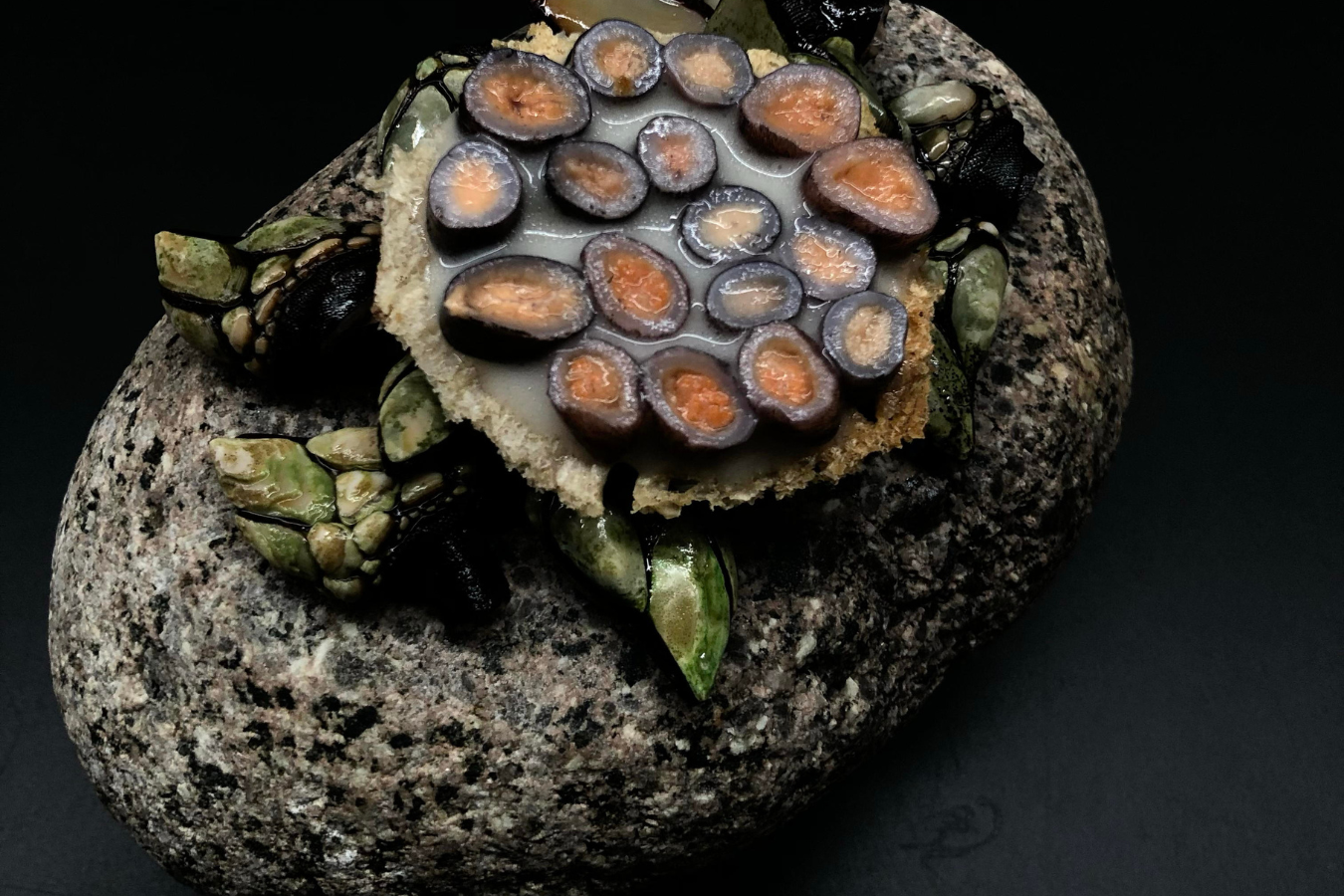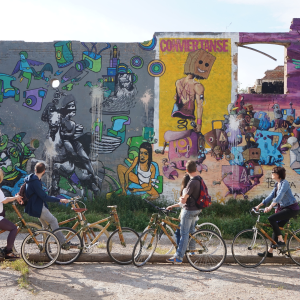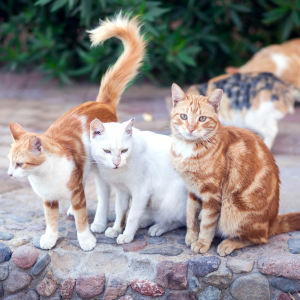In today's article you will learn about a new vision of cuisine and the possibility of promoting sustainable gastronomy through the Eclectic restaurant project, a Biosphere Certified entity located in A Coruña, Galicia, which works every day to improve its responsible practices.
Keep reading and discover their concept!
 Can the Eclectic experience be summed up in one sentence?
Can the Eclectic experience be summed up in one sentence?
At Eclectic, you connect with the past, just like a time machine. Here, you would understand that behind every bite there are centuries and even millennia of mistakes, successes and cultural, local, regional wisdom. Whoever visits us eats history and local culture understood as a construction of exchanges and influences, the fruit of successive layers and generations that preceded us.
You approach sustainability from an unusual point of view... For you, what is sustainable gastronomy?
It is necessary to recognize that sustainable gastronomy does not exist: every human act has an impact on the environment in which we live and gastronomy is not exempt. We can say that there is a commitment to make gastronomy as sustainable as possible, but it is very important to understand that sustainability is not a goal, but a path that involves discernment, effort, renunciation and work.
In our specific case, it is quite complicated. We are an urban restaurant that works to achieve balance in environmental, social and economic needs. In this context, we work from an ‘urban sustainability’ approach: being sustainable in a city takes on few certainties and many challenges to which we must respond with a critical spirit.
For example, having a vegetable garden to provide for us is not coherent in the socio-cultural environment in which we find ourselves as we would need a space on the outskirts of the city to which we would have to travel by car and which would involve an average of two to four trips per day. Our business policy involves supporting micro-enterprises to retain young people in rural or semi-rural environments: young people who return to their grandparents‘ or parents’ homes and with whom we work to contribute our knowledge, express our needs and give them visibility. In this way, one farmer can serve several restaurants, considerably reducing the carbon footprint. This policy may take us away from the big marketing headlines, but it aims for a profound change in the medium to long term and not simply an aesthetic change. Our philosophy is first and foremost to promote while avoiding at all times replacing or occupying, we sincerely believe that this is the best way to retain young people in the environment. In addition, we select those who are working with hunting or ecological criteria to give them greater visibility and encourage them to see the possibility of certifying their work, which is generally a complex and onerous process with many bureaucratic obstacles.

And what does having a vision like yours and applying it in the restaurant give you?
At the moment, it gives us the peace of mind of working to do things well and trying to improve day by day. On the other hand, to be honest, it also gives us some headaches, because if you want to be coherent, you find that, on a day-to-day basis, you are very limited and you have to see how to make environmental and business sustainability compatible.
Carbon footprint offsetting, support for the local socio-entrepreneurial fabric, km 0 products, sustainable management of equipment... What are Eclectic's most important upcoming objectives or projects in terms of sustainability?
We are immersed in the recovery of gastro-cultural heritage and working on the recovery of old recipes that would otherwise be lost. In this sense, we have started working with the historian Ángel Arcay Barral on the recipe book of María Victoria Fernández de España, a well-known journalist, environmentalist and politician from A Coruña. In addition, for this project we are collaborating with the Casa Grande de Xanceda, an Ecological Farm in Xanceda. Depending on its evolution, we would like to be able to recover other recipe books to write down part of Galician gastro-cultural history. For example, few people know why seafood in Galicia, until well past the middle of the 20th century, was used to fertilize the fields or feed the pigs, and people did their best not to eat it in public. There are still testimonies that can be recovered and they will help future generations to understand the Gastro-cultural intricacies of our region.
With regards to work-life balance, in the short term, we hope to be able to have Sundays off to improve the quality of life of our employees. Reconciling business sustainability with this aspect, which we believe is fundamental, and we are working to make it a reality in the short or medium term. In any case, we will adopt intermediate solutions while waiting for this desire to become a reality. The truth is that the catering sector is the one with the least work-life balance: other people's leisure hours are always our working hours.
One of our greatest challenges is to be able to work together with the local administration to create spaces for reflection, collaboration and action.
It is currently impossible to find ways of meeting, even though they have provided the necessary tools for certification. A somewhat utopian dream is an interdisciplinary meeting to generate the necessary exchanges to generate training actions and quantifiable change policies in the short and medium term.
Sustainability can also be measured economically. Is it profitable to be sustainable in catering?
Profitability cannot always be measured or quantified economically, but it is also true that it is the foundation on which a company is built. Today, being sustainable is still a necessary and urgent investment. Whether we like it or not, our medium or long-term future depends on this investment. On the other hand, it is also true that working towards sustainability ends up dictating policies to make your offer more profitable.
What do you think clients value most when they go to a restaurant that integrates sustainability into its actions and business philosophy?
Nowadays, very few clients choose you for your sustainable practices, only those who do expect to see the environment, the local culture and the work of those who accompany you on this adventure. It is true that there is a lack of consumer awareness and, in general, sustainability is seen as a priority until it comes up against or limits us in the personal sphere.
Do you think that clients are becoming more critical of the sector and are able to see when sustainability is real or just a marketing strategy?
The client has very few tools to be critical. It is the time of post-truth and half-truths affect all sectors and the gastronomic sector is not exempt. It is enough to take a look at the article ‘The profession of silence’ by one of the latest gastronomic critics, Ignacio Medina, to understand the state of the sector.
On the other hand, let's say that our society is an ‘intellectual ecologist’. That is to say, we know that it is important and that we have to work for it to the extent that these practices affect us personally. Let's say that it is when sustainable decisions start to limit us or limit certain ‘freedoms’ that ecological awareness disappears.

Let's talk about food waste: how do you think restaurants can tackle this great waste monster?
Our option is a tasting menu that is completely closed and chosen by reservation well in advance. This allows us to buy only what is necessary and nothing more. The menu is designed to make full use of the product: nothing goes to waste, not even the water released by the shellfish. We also include in our menu the so-called ‘non-noble parts’, applying the necessary techniques to give them a new dimension that contributes to the acceptance, enjoyment and pleasure of the client.
On waste management, there are no universal solutions.
Most restaurants that have a menu make purchases based on a forecast, subject to the universal Murphy's law, so there are always products that are thrown away without being used. So where is the problem, supply or demand?
It is undeniable that the change is not only for restaurateurs, many have minimized their cards to the extreme, ensuring higher quality, containing losses and as a consequence generating less waste. However, much of the waste generated by restaurants is associated with the awareness and habits of the client, which undoubtedly need to change. For example, booking does not mean saving a seat so that they do not take it away from me, it means giving the restaurateur tools so that he/she can make better forecasts and manage resources.
Socially we accept that a hotel charges us in advance and even that its prices fluctuate and that, if we cancel the reservation up to a week in advance, we are charged the full amount. But we do not understand that a restaurant does this despite knowing that it works with perishable products.
Nowadays we are used to choosing the hotel room where we want to sleep, the views, the services and almost nobody would think of going to a hotel without a reservation, because they know that they will be ‘punished’ with the amount of the room, at the same time it would seem inconceivable to us that a restaurant would choose what we are going to eat and drink at the time of booking. However, wouldn't it make the most sense? This simple step would make it possible to optimize purchasing and processes, limiting the use of energy and avoiding some of the waste and waste. This is a concrete example of the concept: intellectual sustainability.
The hospitality industry may need to take bold corporate steps, and there are some steps taken by the hotel industry that have been well assimilated by society from which we should learn. A large part of their system could be very useful for the catering sector and would have a direct impact on the use of resources, management efficiency, resource savings and waste reduction.
If you could inspire another restaurateur on sustainability, what advice would you give them?
The restaurant sector may be one of the most heterogeneous and there are no universal answers. Sustainability is a path and no one can take us by the hand. The path is business and / or personal. Undoubtedly, we can go looking at models, picking up ideas that work for others, listening to the environment and the customer. In this way we will find formulas to adapt and seek a balance between business, environmental, social and economic needs. We must bear in mind that there is no such thing as a perfect way and that everything can be improved.














